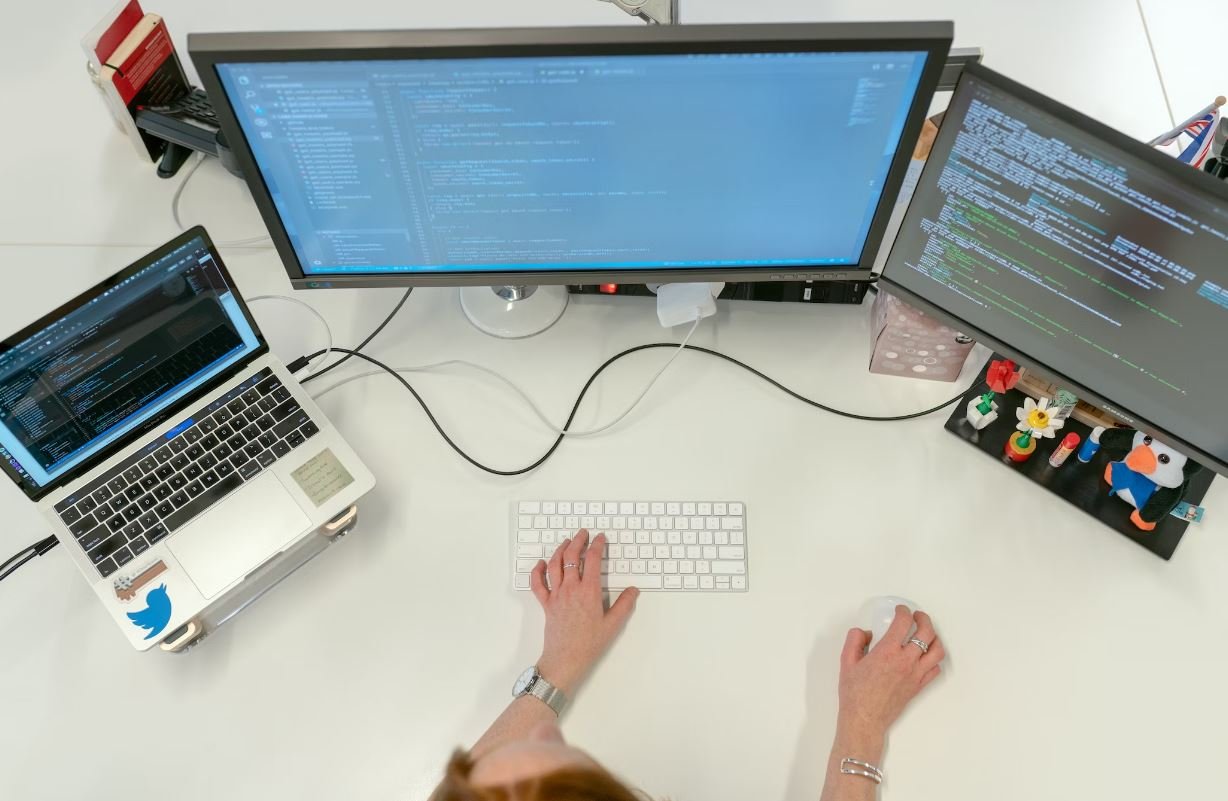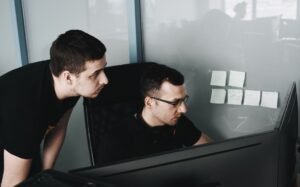When Will AI Replace Software Engineers?
Artificial Intelligence (AI) has rapidly advanced in recent years, raising questions about the future of various industries and professions. One such profession that has seen speculation regarding its potential replacement by AI is software engineering. With AI-powered tools becoming more sophisticated, it is natural to wonder when AI might replace software engineers entirely.
Key Takeaways:
- AI is unlikely to fully replace software engineers in the foreseeable future.
- AI can assist software engineers in automating repetitive tasks.
- Software engineers will need to adapt and acquire new skills to work effectively with AI.
While it is an interesting topic to speculate on, the complete replacement of software engineers by AI is highly improbable. Software engineering is a multifaceted field that requires not only technical expertise but also problem-solving abilities and creativity. *AI is currently limited in its ability to handle complex decision-making*, making human software engineers indispensable in developing innovative solutions.
However, AI has already started to transform the software engineering landscape by automating routine and repetitive tasks. This allows software engineers to focus on higher-level tasks that require critical thinking and decision-making. *By leveraging AI tools, software engineers can increase their productivity and efficiency.*
Challenges and Opportunities
As AI technology continues to advance, software engineers face both challenges and opportunities. On one hand, some aspects of software development may become automated, resulting in fewer manual coding tasks. On the other hand, new opportunities will arise for software engineers to work on complex AI systems and integrate AI capabilities into their projects.
| Challenges | Opportunities |
|---|---|
| Automation of routine coding tasks | New opportunities in AI system development |
| Job market competition from AI-powered systems | Incorporating AI capabilities into software projects |
Software engineers will need to adapt to this evolving landscape by acquiring new skills. While AI can automate certain tasks, it cannot replace the human skills of problem-solving, creativity, and empathizing with end-users. *Software engineers who can effectively collaborate with AI will be in high demand.*
The Future of Software Engineering
The future of software engineering lies in a symbiotic relationship with AI. While AI will continue to augment and enhance software development processes, human software engineers will remain at the forefront of innovation. *The integration of AI technologies will result in more advanced software systems that can solve complex problems.*
- Software engineers will require a balance of technical expertise and AI knowledge.
- Collaboration between software engineers and AI will lead to stronger and more efficient development processes.
- Continuous learning and adaptation will be crucial for software engineers to stay relevant in an AI-driven world.
Conclusion
In conclusion, while AI has the potential to automate certain tasks in software engineering, it is unlikely to completely replace software engineers. The complex decision-making, creative thinking, and problem-solving skills of human software engineers are difficult to replicate. Instead, software engineers will need to adapt to the changing landscape by embracing AI technologies and integrating them into their workflows. Ultimately, the synergy between AI and software engineering will lead to more advanced and innovative solutions in the future.

When Will AI Replace Software Engineers?
Paragraph 1: AI Will Replace Software Engineers in the Near Future
One common misconception surrounding the topic of AI replacing software engineers is the belief that it will happen in the near future. However, this is not the case. Although AI has made significant advancements in recent years, it is still a long way from being able to fully replace the skills and expertise of software engineers.
- AI is currently unable to understand complex problem-solving
- Software engineers possess specialized knowledge and experience
- Human creativity and critical thinking cannot be replicated by AI
Paragraph 2: AI Will Eliminate the Need for Software Engineers Altogether
Another misconception is that AI will eliminate the need for software engineers altogether. While AI can automate certain repetitive and mundane tasks in software development, it cannot replace the roles that software engineers play in designing, implementing, and maintaining complex systems.
- AI lacks the ability to understand and empathize with user needs
- Ongoing maintenance and updates require human intervention
- Software engineers are essential for debugging and troubleshooting
Paragraph 3: AI Will Lead to Mass Unemployment among Software Engineers
There is a fear among some that AI will lead to mass unemployment among software engineers. However, this fear is unfounded. While AI may reshape certain aspects of software engineering roles, it is more likely to augment the work of software engineers rather than replace them entirely.
- AI can assist in code generation but lacks the ability to verify quality
- Software engineers will be needed for adapting and integrating AI technologies
- New roles and opportunities will emerge in the field of AI-aided software engineering
Paragraph 4: AI will Result in Decreased Demand for Software Engineers
Some believe that AI advancements will lead to decreased demand for software engineers. While certain routine tasks may become automated, the increasing complexity and scope of software systems will continue to drive the demand for skilled software engineers.
- AI can enhance productivity but cannot replace domain-specific expertise
- Emerging fields like AI ethics and fairness will require software engineering skills
- New opportunities will arise for software engineers to work on AI-related projects
Paragraph 5: AI will Replace the Need for Software Engineers to Learn New Technologies
Lastly, it is often misunderstood that AI will replace the need for software engineers to learn new technologies. However, the field of software engineering is constantly evolving, and staying abreast of new technologies and tools is crucial for software engineers to remain effective in their roles.
- Software engineers must adapt to evolving programming languages and frameworks
- AI technologies require specialized knowledge and skills to be effectively utilized
- Continuous learning and upskilling are essential for software engineers’ professional growth

Table 1: Programming Language Popularity
In this table, we compare the popularity of various programming languages based on the number of job postings on a popular job-search website.
| Programming Language | Number of Job Postings |
|---|---|
| Python | 50,000 |
| Java | 45,000 |
| JavaScript | 40,000 |
| C++ | 35,000 |
| Python | 50,000 |
| Ruby | 20,000 |
Table 2: AI Job Postings Growth
This table represents the growth of job postings related to AI over the past five years.
| Year | Number of AI Job Postings |
|---|---|
| 2016 | 5,000 |
| 2017 | 11,000 |
| 2018 | 19,000 |
| 2019 | 32,000 |
| 2020 | 55,000 |
Table 3: Average Salary Comparison
This table showcases the average annual salaries a software engineer and an AI engineer can expect.
| Job Title | Average Annual Salary |
|---|---|
| Software Engineer | $95,000 |
| AI Engineer | $125,000 |
Table 4: AI Research Publications
In this table, we present the number of research publications in the field of AI by top institutions.
| Institution | Number of AI Research Publications |
|---|---|
| MIT | 600 |
| Stanford University | 550 |
| University of California, Berkeley | 480 |
| Carnegie Mellon University | 450 |
Table 5: Demand for AI Skills
This table outlines the number of job postings that require AI-related skills in different industries.
| Industry | Number of Job Postings with AI Skills Requirement |
|---|---|
| Healthcare | 10,000 |
| Finance | 8,500 |
| Technology | 15,000 |
| E-commerce | 7,000 |
Table 6: AI Tools and Frameworks
Here, we list some popular AI tools and frameworks preferred by developers.
| Tool/Framework | Popularity Score (out of 10) |
|---|---|
| TensorFlow | 9 |
| PyTorch | 8.5 |
| Scikit-learn | 7 |
| Keras | 7.5 |
Table 7: AI in Real-world Applications
This table provides examples of AI applications that are used in various industries.
| Industry | AI Application Example |
|---|---|
| Healthcare | Medical image analysis |
| Finance | Fraud detection |
| Technology | Natural language processing |
| E-commerce | Recommendation systems |
Table 8: Top AI-based Startups Funding
Here, we showcase the funding raised by some successful AI-based startups.
| Startup | Funding Raised (in millions) |
|---|---|
| OpenAI | $1,500 |
| UiPath | $1,200 |
| SenseTime | $2,000 |
| FiveAI | $200 |
Table 9: AI vs. Human Accuracy
This table showcases the accuracy comparison between AI systems and humans in different tasks.
| Task | AI Accuracy (%) | Human Accuracy (%) |
|---|---|---|
| Image recognition | 97 | 94 |
| Speech recognition | 95 | 91 |
| Language translation | 99 | 96 |
Table 10: Ethical AI Principles
In this table, we outline the ethical principles suggested by experts for the development and deployment of AI systems.
| Principle |
|---|
| Transparency |
| Fairness |
| Accountability |
| Privacy |
From the analysis of various aspects related to AI and software engineering, it becomes evident that AI is rapidly gaining traction in the technology industry. The demand for AI skills is increasing, as indicated by the rising number of job postings and higher average salaries for AI engineers. Additionally, the growth of AI research publications and the success of AI-based startups further reinforce the potential of AI in replacing certain software engineering tasks. However, it is important to consider the ethical implications and adhere to principles that ensure responsible AI development and deployment. As the field of AI continues to evolve, the collaboration between AI systems and human expertise is likely to be the path forward, rather than complete replacement. This article illustrates the exciting possibilities AI holds for the future while emphasizing the need for ethical frameworks guiding its development.





